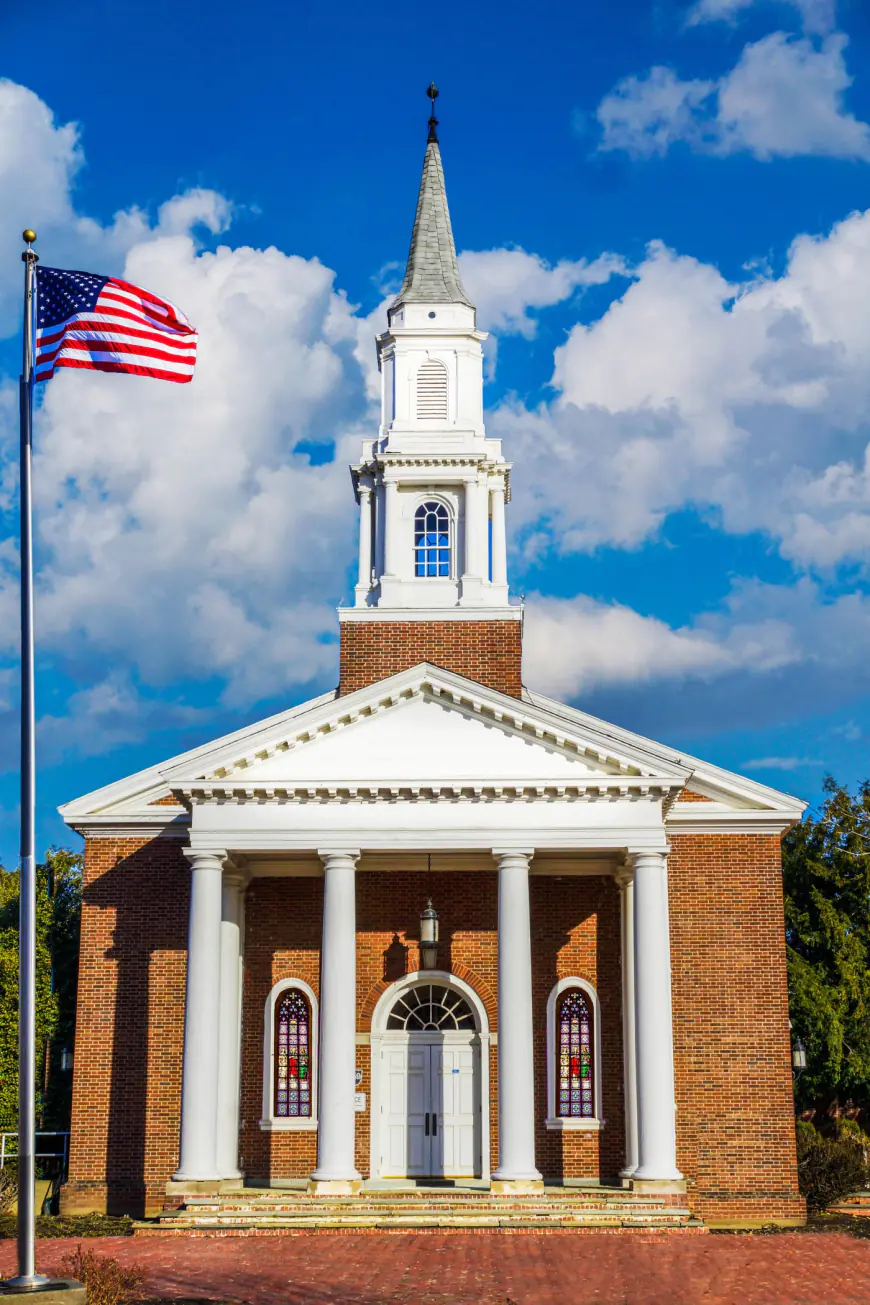Gaskin: Christianity too often co-opted to oppress
The critiques of figures like Garvey, Carmichael, Newton, and Baldwin remind us of historical patterns of resistance and backlash. Their voices remind us of the need for a faith that liberates rather than oppresses.

From the Jim Crow era to the present day, Christianity has been co-opted to serve white supremacy, alienating many Black leaders and communities.
After emancipation and Reconstruction, which brought the 13th, 14th, and 15th Amendments — abolishing slavery, granting citizenship, and extending voting rights to Black men — a backlash emerged in Jim Crow laws. These laws enforced segregation and disenfranchisement in the late 19th and early 20th centuries, often justified by Christians citing the Bible. Groups like the Ku Klux Klan viewed themselves as “Bible-believing” Christians, using scripture to uphold white supremacy.
A prime example is a misreading of Genesis 9:20–27, where Noah curses Ham’s son, Canaan, to be a “servant of servants.” Many white Christians claimed Ham’s descendants were Black people and that this “curse of Ham” sanctioned their subjugation. This interpretation validated slavery and segregation. Figures like George Wallace, a Christian and proud segregationist, and Bob Jones Sr., founder of Bob Jones University, preached sermons arguing that segregation was divinely ordained.
After Brown v. Board of Education ruled segregation unconstitutional, ministers like Rev. Carey Daniel wrote “God the Original Segregationist,” opposing integration on biblical grounds. Such acts led many Black Americans to see Christianity as a “white man’s religion,” used to oppress rather than liberate.
Conservative white Christians cited Acts 17:26, which states God determined “allotted periods and boundaries” for nations, as evidence that segregation was divinely mandated. Romans 13:1–7, which urges submission to authorities, was used to insist Black Americans accept segregation as God’s will. White supremacy was presented as divine favor, merging whiteness, Christianity, and American identity into the “Christian nation” ideal. Segregationists resisted integration by calling it a threat, arguing that interracial relationships would foster immorality.
In modern times, the politics of many white conservative Christians continue to mirror this history of opposition. After the Barack Obama administration, over 80% of white evangelicals backed Donald Trump, viewing him as a “modern-day King Cyrus” chosen to fulfill God’s purpose. His survival of an assassination attempt only strengthened this belief. Under Trump, conservative Christians pushed to end Diversity, Equity, and Inclusion (DEI) initiatives, Critical Race Theory, and “wokeness,” calling them threats to American values. After Biden’s election, these efforts intensified, culminating in Trump-led reversals of anti-racism policies.
As Black History Month unfolds in 2025, critiques of Christianity by Black leaders who rejected the faith remain relevant. Their disillusionment with a religion co-opted to maintain white supremacy echoes in today’s religious and political landscape.
Marcus Garvey, Stokely Carmichael, Huey Newton, James Baldwin, Elijah Muhammad, and Louis Farrakhan are examples of Black leaders raised in Christian homes who later rejected the faith. Their departures were not rejections of morality but critiques of Christianity’s complicity in oppression.
Marcus Garvey
Born in Jamaica in 1887, Marcus Garvey grew up in an Anglican household where his mother instilled Christian values, and his father emphasized education. These influences shaped Garvey’s commitment to community. He used Christian rhetoric, likening the African diaspora to Israelites and calling for a “return to Africa” as the Promised Land. Through the Universal Negro Improvement Association (UNIA), he employed biblical themes to promote unity among African-descended people. Yet Garvey condemned Christianity’s role in colonialism, criticizing a faith that promoted submission over resistance. His challenges to “white Christianity” paved the way for future leaders to question its role in Black oppression.
Stokely Carmichael (Kwame Ture)
Raised in a Christian household in Trinidad, Stokely Carmichael (Kwame Ture) grew up with strong community and moral values. However, as he became radicalized, he rejected Christianity, seeing it as a tool of colonialism and control. As leader of the Student Nonviolent Coordinating Committee (SNCC), he shifted the group’s philosophy from integration to Black self-determination. He popularized the term “Black Power,” advocating for global solidarity among African-descended people. Carmichael criticized Christianity for pacifying the oppressed by focusing on suffering and salvation in the afterlife rather than justice in the present. Influenced by anti-colonial struggles, he saw Christianity as a weapon wielded by European powers to dominate Black people.
Huey Newton
Huey Newton, co-founder of the Black Panther Party, was raised in a Christian household in Oakland, California, by a Baptist minister father. Despite his religious upbringing, Newton rejected Christianity as he embraced Marxist and revolutionary ideologies.
The Black Panther Party emphasized community service and collective responsibility, values Newton likely inherited from his Christian background. However, he critiqued Christianity for perpetuating white supremacy and discouraging resistance. Rejecting the “turn the other cheek” philosophy, Newton viewed religion as a tool of control, advocating instead for direct action and self-defense in the pursuit of justice and liberation.
James Baldwin
Celebrated writer and social critic James Baldwin was raised in a Pentecostal household in Harlem. By his teenage years, he had become a youth preacher, but he later rejected Christianity, seeing it as complicit in systemic racism and oppression.
In works such as “The Fire Next Time” and “Go Tell It on the Mountain,” Baldwin examined how religion upheld white supremacy while failing to address racial injustice. He argued for a radical reimagining of human relationships based on love and equality, rejecting a faith that prioritized submission over liberation. Baldwin’s departure from Christianity was not a rejection of morality but a refusal to align with a faith that, in his view, failed to live up to its ideals.
The critiques of figures like Garvey, Carmichael, Newton, and Baldwin remind us of historical patterns of resistance and backlash. Their voices remind us of the need for a faith that liberates rather than oppresses — a vision of justice and equality that challenges the enduring misuse of Christianity in the service of racial inequality.
Ed Gaskin is Executive Director of Greater Grove Hall Main Streets and founder of Sunday Celebrations.
What's Your Reaction?









































































































